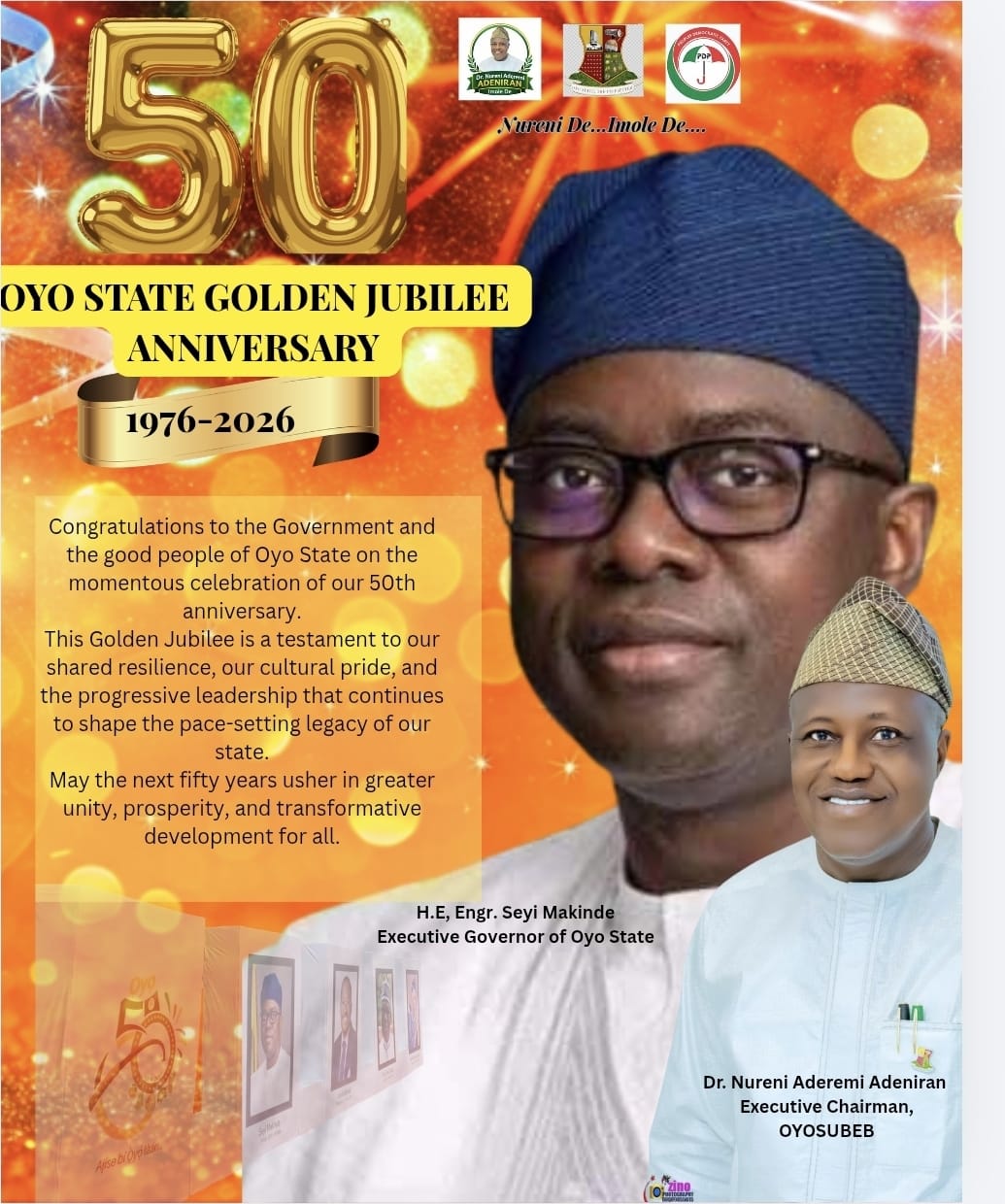Fuji star, Saheed Okunola, popularly known as Saidi Osupa, is a year older today. Sikiru Akinola, who sat down with the Ibadan-born talented musician, write about his early years, how he got his love for using proverbs in his songs, his musical influences and bares his mind on other issues surrounding his music, and person….Excerpt
Growing up: Rough And Tough
According to him, it was rough and tough. “Things began to dwindle financially for my parents who were formerly rich as I was growing up. And along the time, they got broke one way or the other. Then I was not staying with my father because my parents were separated when I was young. So, I lived with my mother at that period. She did all kinds of things, just to make sure I become somebody in life. She sold almost everything she had just to fend for us.”
Educational Background
Before he was admitted to study political science at the University of Ibadan, he had a National Diploma in Business Administration from The Polytechnic, Ibadan.
“Also, when I got to the United States, I attended a computer school where I studied networking operations and a little bit about computer programmes,” he revealed, saying that “I don’t have much to say about it.
The road was rough because I expected my father to assist me but…I don’t want to make further comment. I did everything myself with my brother, Lateef.”
The Journey To Fuji Music
Osupa, who said he started singing precisely in 1983 and started acting the same year, explained that the need to support his parents motivated him “I have been doing it for a year before they got to know. When I watched my mother struggling, trying to make ends meet; days when things were worse, I decided to look for alternatives. When I saw my friends hustling after their parents have sold everything; knowing that what their parents were bringing home was not enough for them, that was when I also decided to join them.
Along the line, that was how I got into acting and music,” he disclosed.
Motivation
Without blinking an eye, he said: ”Ah! It is no other person than the late music legend, Sikiru Ayinde Barirster,” adding that “If you have listened to Aka, Yusuf Olatunji and others whose styles are interwoven, you will see Aka singing part of what Olatunji has sang. You will see Olatunji also singing a part of Aka’s music. But Barrister came up with new things because Aka and Olatunji were singing the same kind of music but with a different voice. ”
Although Barrister was singing a little bit of Aka and Olatunji’s lyrics in order to carry the fans of the duo along but he too created his own.
So, that was what really impressed me about Barrister. So, I was thinking of doing the same kind of thing in a better way. That was what I had in mind. And I am grateful to God that I have done it better than I thought.”
Do you always have somebody in mind before singing?
His reply was: ”No! I even sing sometimes to correct myself. Let me tell you something: we have different kind of people everywhere. On this street for example, there must be definitely someone with a bad character. Even in an household, there must be one; his character may be open to some people and some people may not be aware, a hidden kind of behaviour. Mischievous people always hide their behaviours while there are also some people who are lousy with their bad behaviour. In every household, my songs will definitely affect, at least, a person. So, that is how it affects people generally.”
Is he controversial?
“(Cuts in) Do you think so or people say it? Is it the view of you journalists? No, it cannot be true,” he said, explaining that contrary to widely-held opinion by music lovers that he is into a kind of rivalry with Pasuma, they are friends.
Hear him: ”Hmmm! Rivalry? No, It is not something personal. To me, I believe it is normal in business to be involved in such. If you are involved in the same business and you are selling to the same market, there is bound to be competition. So, it is competition, not rivalry.
Is he hot-tempered?
“I can say I have changed but when I was choleric, it was due to childish behaviour which was normal in most young adults. Saheed Osupa is grown up now. Saheed Osupa is a very calm person now.
The juvenile stuff is gone. Like my son would tell me: “Daddy, you are old now”.
His feelings about rumours:
“As a public person, that is not a big deal. You are bound to face things like that. People will talk about you no matter how. People see you every day. They are watching the way you behave and by implication, you are an object of scrutiny.
“They monitor everything you do. So, there is bound to be rumours about you; they will say what they see about you. Some will add to it while some will just frame something that did not even happen. So, I am not always moved. It is normal unless you are not a known person. That is when they will stop peddling lies about you. But if you are still existing; still doing new things every day, they will keep talking about you. And for that sort of controversy which you mentioned: what I like is challenge, I don’t like controversy. I don’t fight people for no just cause.
For example, if you are trying to stop me from achieving what is normal for be to achieve, I believe there is going to be a rancour or a misunderstanding between me and the person. That is where controversy comes up.
“I am not the type that just cooks up something that doesn’t have any meaning and take offence; I don’t do that. It is only when somebody or a group of people are trying to prevent me from achieving a target goal or from progressing, that is when I enjoy controversy because I cannot watch and allow you to stop me from getting what I know would improve my life positively. I am not somebody who would want to achieve anything at the detriment of others; because I want to achieve this, I should destroy that person’s image. I don’t that.
Why does he use innuendo and philosophical sayings
“Really I am a Lagos person but I am from Ibadan. I lived with my grandmother and she always talked in proverbs. If she says something and you tell her you don’t understand, she would tell you: “understand if you want to understand. I have said my own.”
So, from there, we learned how to understand her. Later whenever she spoke, we started understanding her. That was where I started building the knowledge,” he said.
Where has this fuji music taken him to:
“Though I have met the movers and shakers of this country but what I have in mind to achieve which I believe God will help me to achieve is that I want fuji to become a universal music. Barrister has done his part but not much. I want people that do not hear what I am saying and do not understand the lyrics to dance to my fuji music. I am thinking of a way to do it. I will surely achieve it one day.”
Is Osupa a millionaire?
“I cannot say I have achieved all what I dreamt but I thank God because I never thought of what I have become. I never even thought of these achievements. I dabbled into it just to make ends meet. I never thought I would become famous but I have had this sign that I would become famous when I was young because everybody knows me wherever I stay. “When I left my parents’ place to live in another environment, within a month, all the people on that street had known me; not even about controversy. That was when I started sensing this kind of fortune. I would only thank God for what he has done in my life so far. I did not even think of becoming half of what I have become today,” he confessed.
How he manages advances from women
“It is normal for such thing to happen because women like famous people. Some like you for what you are doing, some because you are famous regardless of what you are doing. You know some people are doing bad things and they are famous for it and ladies still like them, though they don’t like what they are doing. So that is how it is. Some people like my music more than me while some like my personality more than my music,” he submitted.

What does it take to face the crowd
“We are not created equally. Like me for example, everything about me is natural. Though I used to be stage-frightened when I started but I later overcame it. I don’t take anything. Nothing makes me perform better. I don’t even need anything to influence me.” His night life “Well, not always. I am resting or thinking; trying to bring up new things but sometimes, I go to club. All work and no play make Jack a dull boy.”
Any lesson from the death of Sikiru Ayinde Barrister
“It has taught me a lot. Some of the lessons are personal to me. I cannot disclose them. It has taught me to be very hard-working; that if you are hard-working, your name would be etched in gold when you die. It was after Barrister died that many people began to appreciate him. Such would teach someone that is still alive to work harder.”
What would you like to be remembered for?
“That is creativity because I believe in doing new things. For example, when I am old and gone, I want people to listen to my songs and others and say that if it were to be Osupa, it would have been well-sang. His fondness for his late mother: “I built this house for her but she warned me against organising the house warming ceremony in her name. I told her the importance but she resisted it, saying she wanted me to open it in my name.”



























